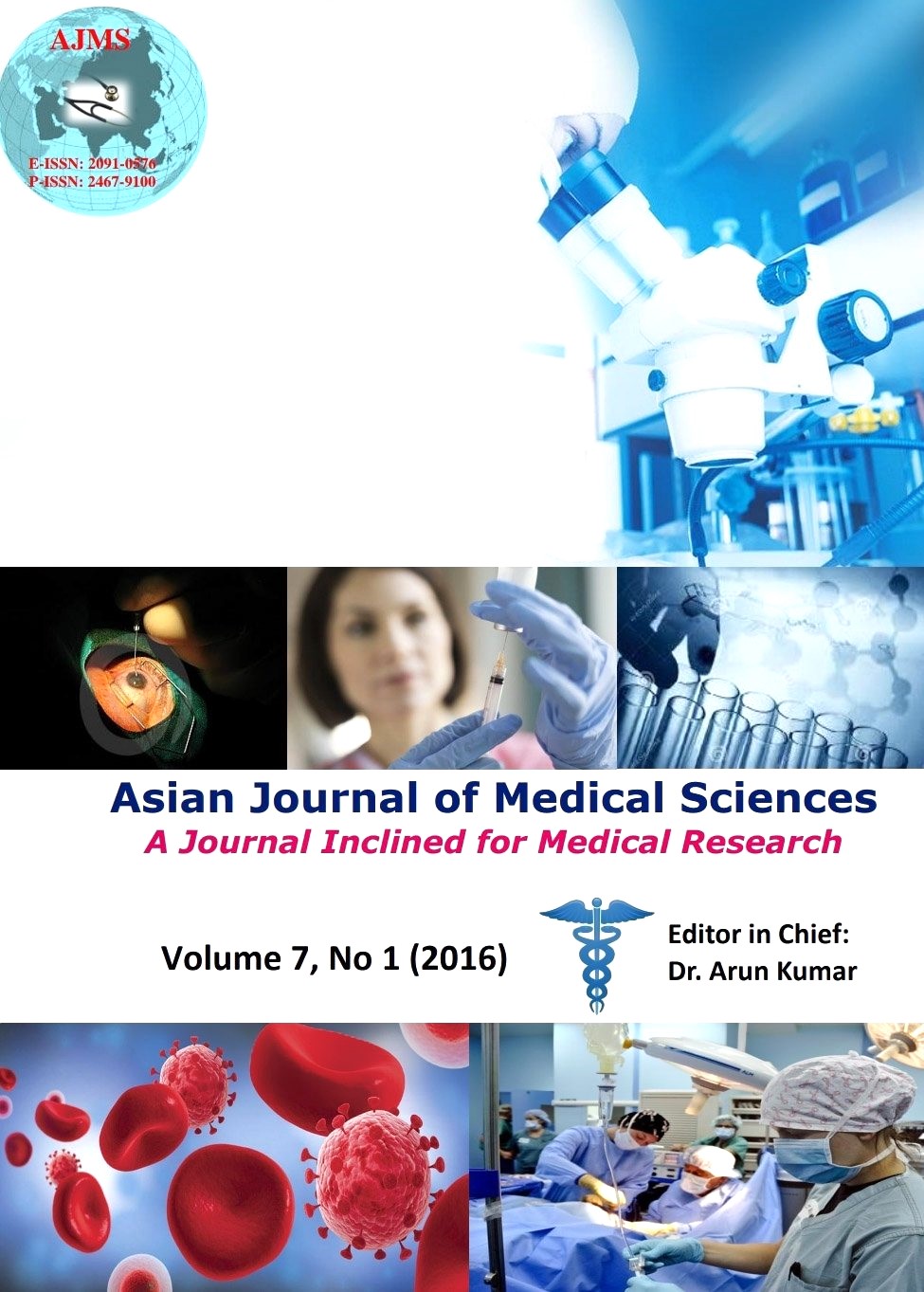Correlation of Serum zinc with TSH in hyperthyroidism
Keywords:
metabolic diseaseAbstract
Aims and Objectives: Trace elements may have a role in progression of hyperthyroidism. We planned to estimate the serum zinc, copper and ceruloplasmin in hyperthyroids.
Materials and Methods: 41 hyperthyroid patients and 32 control subjects were taken for the study. Serum T4,TSH ,zinc, copper and ceruloplasmin were estimated in them. T4 and TSH were estimated by ELISA method. Zinc and copper were estimated by colorimetric method. Serum ceruloplasmin were estimated by Ravins method.
Results: Significant decrease of TSH (p<0.0001)and zinc(p<0.0001) were found in hyperthyroids in comparision to controls. Serum copper and ceruloplasmin were significantly elevated(p<0.0001) in them. Significant positive correlation between TSH and zinc was observed in case group.
Conclusion: Zinc defficiency may contribute to the worsening of hyperthyroidism. Zinc supplementation may improve the condition.
Asian Journal of Medical Sciences Vol.7(1) 2015 66-69
Downloads
Downloads
Additional Files
Published
How to Cite
Issue
Section
License
Authors who publish with this journal agree to the following terms:
- The journal holds copyright and publishes the work under a Creative Commons CC-BY-NC license that permits use, distribution and reprduction in any medium, provided the original work is properly cited and is not used for commercial purposes. The journal should be recognised as the original publisher of this work.
- Authors are able to enter into separate, additional contractual arrangements for the non-exclusive distribution of the journal's published version of the work (e.g., post it to an institutional repository or publish it in a book), with an acknowledgement of its initial publication in this journal.
- Authors are permitted and encouraged to post their work online (e.g., in institutional repositories or on their website) prior to and during the submission process, as it can lead to productive exchanges, as well as earlier and greater citation of published work (See The Effect of Open Access).




